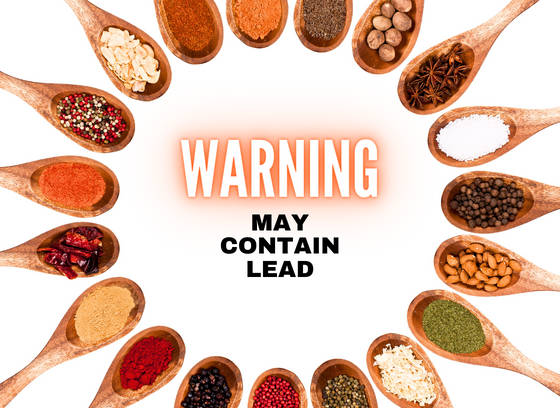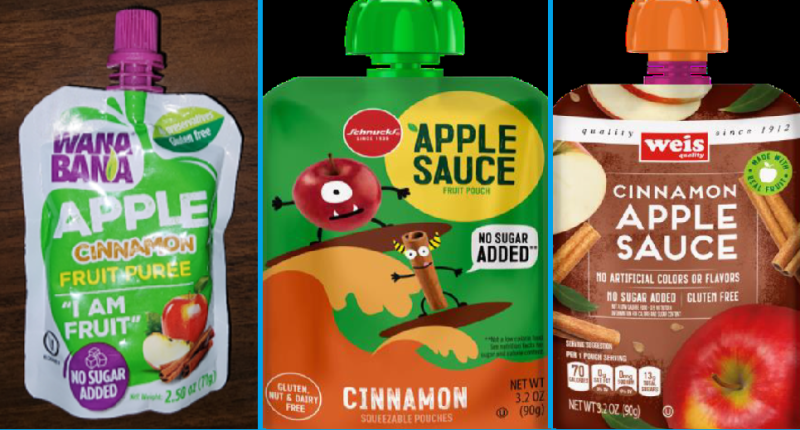Elevated Blood Lead Program
The Howard County Health Department provides case management support to families with children who have elevated blood lead levels and coordinates with health care providers for appropriate referrals and follow-up testing. Find resources here if you’re a parent who wishes to know more about lead poisoning or a provider looking for patient education materials.

For Parents
Elevated lead levels can have negative effects over time on children’s mental and physical development, including:
- Damage to the brain and nervous system
- Slowed growth and development
- Learning and behavior problems
- Hearing and speech problems
All children should receive blood lead screening at the following routine well-child visits to their providers:
- At 12 months
- At 24 months
Do not skip or delay routine testing; if you have missed either of these well-child visits, please contact your provider to schedule an appointment.
Fact Sheet: Testing for Lead in Consumer Items
Childhood Lead Poisoning Prevention
For questions or more information, call the Howard County Health Department at: 410-313-7500 or toll-free at 1-866-313-6300.
Additional questions may be directed by e-mail to askhealth@howardcountymd.gov.
For Providers
When a child in Howard County is identified as having an elevated blood lead level, the Health Department works with the pediatrician and family to help identify the source of lead exposure and remove it from the child’s environment. The Health Department can educate families, provide case management, coordinate resources, and in some cases collaborate with the Maryland Department of the Environment to arrange home inspections. Health Department staff follows children with elevated lead levels until their lead level has dropped below the level of concern identified by the Centers for Disease Control and Prevention (CDC).
For questions or more information, call the Howard County Health Department at: 410-313-7500 or toll-free at 1-866-313-6300.
Additional questions may be directed by e-mail to askhealth@howardcountymd.gov.
Fruit Pouch Recall
Fruit Pouch Recall

The FDA is investigating Elevated Lead levels connected to the following apple puree and applesauce pouch products:
- Recalled WanaBana apple cinnamon fruit puree pouches (sold nationally and available through multiple retailers including Amazon and Dollar Tree)
- Recalled Schnucks brand cinnamon-flavored applesauce pouches and variety pack
- Recalled Weis brand cinnamon applesauce pouches (i.e., specific lots of UPC 041497216123)
At least seven illnesses in five state, including Maryland have been linked to these products. More information about what to do if you believe you have a product impacted by this recall can be found on the FDA website.
Symptoms of Lead Toxicity
Lead is toxic to humans and can affect people of any age or health status. Protecting children from exposure to lead is particularly important because they are more susceptible to lead toxicity. Most children have no obvious immediate symptoms. Parents and caretakers should consult a healthcare provider if you suspect a child may have been exposed to lead.
Short term exposure to lead could result in the following symptoms:
- headache;
- abdominal pain/colic;
- vomiting;
- anemia.
Longer term exposure could result in the following additional symptoms:
- irritability;
- lethargy;
- fatigue;
- muscle aches or muscle prickling/burning;
- constipation;
- difficulty concentrating/muscular weakness;
- tremor;
- weight loss.
Recommendation
- Consumers should not eat, sell, or serve recalled WanaBana, Schnucks, and Weis brand apple cinnamon pouches and should discard them.
- These products have a long shelf life. Consumers should check their homes and discard these products.
- Most children have no obvious immediate symptoms of lead exposure. If there’s suspicion that a child may have been exposed to lead, parents should talk to their child’s healthcare provider about getting a blood test.
- Contact your healthcare provider if you think you may have symptoms of lead toxicity after eating recalled fruit pouches.
Ground Cinnamon Advisory
FDA Alert Concerning Certain Ground Cinnamon Products Due to Presence of Elevated Levels of Lead
Through product testing, the FDA has determined that certain ground cinnamon products contain elevated levels of lead and that prolonged exposure to these products may be unsafe.
The affected products include Supreme Tradition Ground Cinnamon sold at Dollar Tree and Family Dollar stores.
For a complete list of affected products, read the FDA advisories from March 6 and July 30.
Recommendations for consumers
- The FDA is advising consumers to stop using and dispose of these products.
- Consumers should not eat, sell, or serve ground cinnamon products listed in the table above and should discard them.
- These products have a long shelf life. Consumers should check their homes and discard these products.
- If there’s suspicion that someone has been exposed to elevated levels of lead, talk to your healthcare provider. Most people have no obvious immediate symptoms of lead exposure.
Patient Education Materials
Lead Exposure Information Cards
Well Fed Means Less Lead Brochure
Frequently Asked Questions (FAQs)
What is lead poisoning?
Lead poisoning occurs when lead enters the body through contaminated air, food, water, dust, or soil and builds up in the blood and soft tissue. Anyone can have lead poisoning, but children are more at risk because they are more likely to chew non-food items, more likely to get lead dust on their hands, and they absorb lead more easily than adults. Most children with increased lead levels in their blood do not have any obvious symptoms and only find out they have been exposed to lead during routine screening. Even low levels of lead can have negative effects over time, especially on mental and physical development.
Resources:
What can cause lead poisoning?
There are a number of ways in which children, and others, can be exposed to lead.
Lead was commonly used in paint, plumbing components and other materials before it was known to be toxic to humans. Older homes and structures may still have lead based paint. As old paint breaks down over time, it creates lead dust which can be ingested. (In 1978, lead was banned from use in paint in the United States.)
While lead based paint from homes built before 1978 is one of the most common sources of exposure, there are many other things that may contain lead.
These include:
- Ceremonial and/or religious powders (kajal, kumkum, sindoor, khol)
- Spices contaminated with lead (especially turmeric, cumin, chili powder)
- Imported or antique glazed pottery, ceramics, or pewter dishes
- Some types of jewelry
- Folk/Traditional medicines (Greta, Azarcon, Ghasard, Daw Tway)
- Some Mexican candies
- Hobbies like fishing (lead sinkers), stained glass, pottery glazing
- Soil contaminated by lead (often near highways or homes with exterior lead paint)
- Plumbing components
Resources:
How do I prevent my child from being exposed to lead?
For homes built before 1978:
- Be on the look-out for chipping or peeling paint.
- Try to create a physical barrier between your child and areas of deteriorating paint until clean-up can be completed by a trained professional.
- Regularly wet-mop floors and wipe surfaces with wet cloths to remove lead dust. Do not try to remove the paint yourself by sanding or stripping because that may release more lead dust into the home.
For other types of exposure to lead:
- Wash your child’s hands frequently, especially after playing outside and before meals
- Avoid playing in bare soil
- Avoid cooking or eating food from imported or antique glazed pottery, ceramics, or pewter dishes
- Avoid using spices imported from overseas
- Avoid using kumkum, kajal, sindoor, or other powders on children
Resources:
What can I do if my child has elevated lead levels?
If your child has been diagnosed with elevated lead in their blood, the first thing to do is to figure out how they are being exposed. Work with your doctor and the Health Department’s case manager to review your child’s environment and identify possible sources of lead, then make efforts to eliminate them. Your child will also need to be retested to make sure their lead level is coming down. Be sure to follow your doctor’s guidance on when and how often your child should be retested.
Make sure to serve your child a healthy diet rich in calcium, iron, and vitamin C, as these foods may help keep lead out of the body.
How can I test a household item for lead?
Exposure to household items containing lead can be dangerous, especially for children. If you are concerned that something in your home contains lead, you should stop using it immediately and consider disposing of the product or performing a lead test.
Over-the-counter swab tests are often the best, inexpensive first step for people to test for lead at home. Consumers should note that these tests may not be as accurate as tests performed by a laboratory. More information and considerations for lab testing can be found in the following Fact Sheet.
- Fact Sheet: Testing for Lead in Consumer Items (National Center for Healthy Housing)
Anyone who believes they, or a family member, have been exposed to lead should contact their primary care provider for advice.